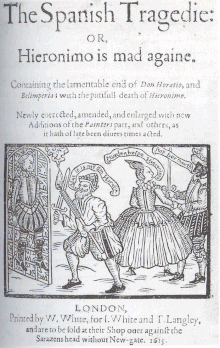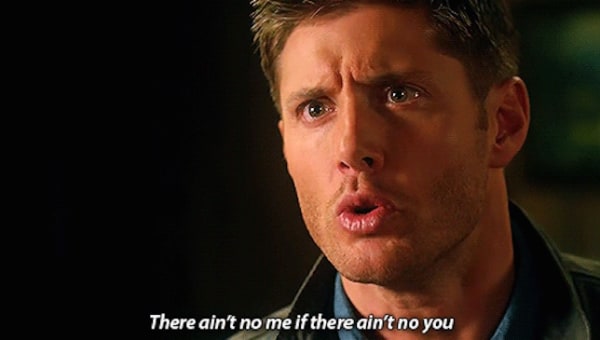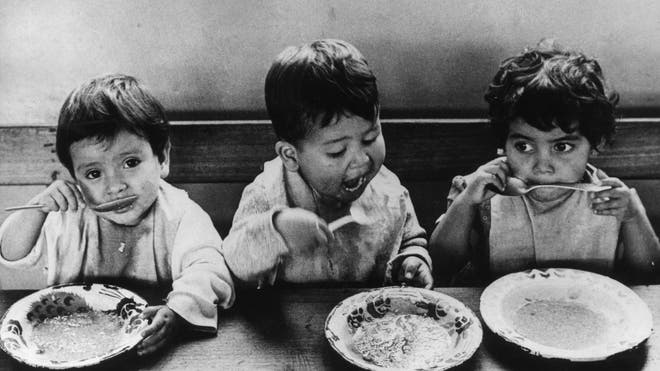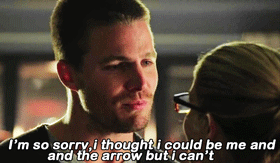These lines again convey the fragmented, ruined aspect of them poem. Eliot uses a fragmented, incoherent form—as well as portraying a fragmented reality—in order to symbolize the crumbling of society. The line, “these fragments I have shored against my ruins” is used at the very end of the poem as a sort of verbal sigh—as if to say, “I will carry on through the rubble and ruins”. Within the poem, Eliot speaks of redemption and rising above the desolation and destruction society will experience, but in the end he tells us that life is inherently fragmented, and suggests that we must accept this.

The line, “Why then Ile fit you. Hieronymo’s mad againe,” is in reference to “The Spanish Tragedy, or Hieronymo is Mad Again,” an Elizabethan tragedy by Thomas Kyd (written between 1582 and 1592). In this play, Hieronymo is driven near madness after the murder of his son, and he decides to take revenge by killing the murderers. This is made possible when the murderers ask him to supply a play for the court, and he takes this as an opportunity to kill them. He says, “why then ile fit you,” which means that he will accommodate their wishes. Though, he also means to kill his son’s murderers.
The reference to this play may suggest that the speaker in The Waste Land sees himself in the role of Hieronymo, driven to madness over the loss of a senseless death. In Eliot’s case, perhaps it is the loss of humanity that drives him near madness. And perhaps these losses themselves are solitary fragmented moments in the characters’ lives—awful things happen, and we cannot make sense of them, which has a profoundly uncomfortable affect on us. Like Eliot’s use of multiple fragmented languages in The Waste Land (often leaving the reader questioning why he chooses to do so), Hieronymo conducts his play in various languages, leaving the actors puzzled. Eliot may believe that fragments are essential for understanding the essence of the whole—we cannot necessarily connect the fragments of life together in a coherent pattern, but we can experience them all in a random sequence. Even the three lines in this annotation don’t clearly connect to one another—they are fragments, references to various notions and various pieces of literature.
“Datta. Dayadhvam. Damyata.” means, “give, sympathize, control.” This line in “What The Thunder Said,” is taken from a Hindu fable in the Brihadaranyaka Upianshad, called The Fable of the Meaning of Thunder/The Voice of Thunder. According to the story, thunder makes “Da” sounds, and these three words in Sanskrit are supposed to represent this sound of thunder. One theory proposes that Eliot suggests that the thunder will give us the rainwater we need to help replenish our dead wasteland of a world. “Give, Sympathize, Control,” may be Eliot’s final messages/commands/lessons to his readers. He has shown us through many fragments the ailments of man and suggests a change needs to be made.

Perhaps, Eliot ends this dismal poem with a chance of hope, telling us that no matter how much death and destruction the world faces there is always a chance at redemption. Or, perhaps these fragmented last lines—that possibly have no connection to each other—cannot be taken as a true “ending” to the poem. If we think of the entire poem as many fragments, can there be an "ending" an all? Perhaps it is just another fragment, another instance of intertextuality. Hieronymo definitely takes control, but does he show sympathy? Are we left with his “madness,” a feeling of despair, and the meaninglessness of life, yet a possible redemption? Do we even need to make a connection between these last three lines, or is that the point of the fragmentation—we cannot connect everything, but we can gather many separate meanings. We may simply take away a general tone or just an overall reading experience. These three lines don’t seem connected to each other, but they do share a similar fragmented “vibe,” it seems.
Eliot’s many instances of intertextuality, fragments, stories that don’t connect, relate to the overall idea of a land laid to waste, an apocalyptic, destroyed world where only bits and pieces remain. The fragments might also relate to a sort of dialogism—though the instances of intertextuality aren’t directly connected, Bakhtin’s theory of dialogism says, in a very basic form, that every text is affected by the texts that came before it, and also every text in the future affects all texts from the past. Perhaps this jumbled, fragmented mess of a poem, in part, plays with the idea that although things do not seem connected everything matters. We can never read the same text the same way twice, and our reading of The Waste Land will affect how we view the texts that it references. So despite the disconnected fragments, there is a way that the various fragmented pieces affect one another.











